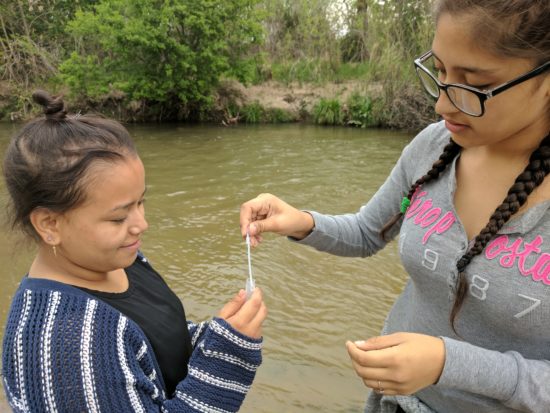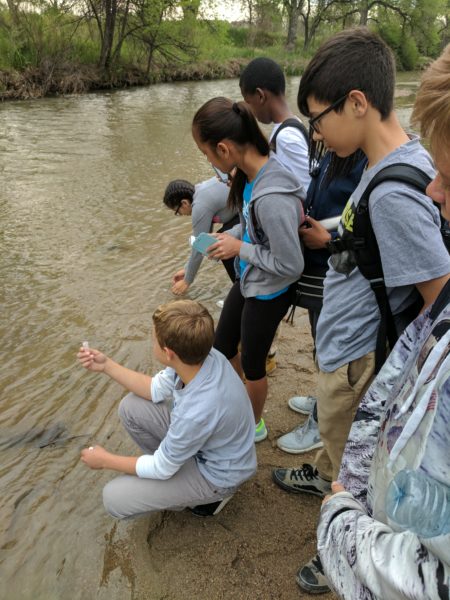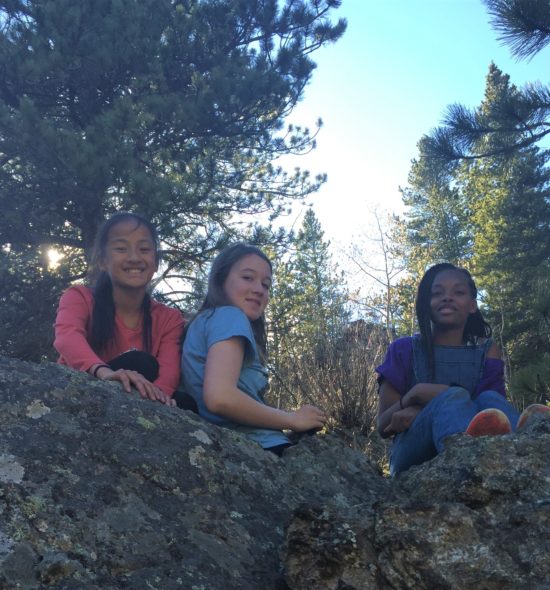This spring Denver Green School CAP classes had an awesome and exciting semester! We explored the world around us; Learned new skills and wilderness survival; Educated ourselves about environmental issues that affect our communities; And designed and implemented community action projects to affect real change in our worlds! We began the semester by exploring our connection to nature, and how we define it and live with it. We learned that nature can be found anywhere, even in cities and our neighborhoods! Then we moved on to learning about environmental issues in our communities in a range of topics: water, transportation, energy, ecology, food, and waste.

The Monday/Wednesday CAP class finished the year out strong with a project related to pollution in streams. We were interested in exploring our local waterway, Cherry Creek, to discover which, if any, contaminants were present. The first half of our project involved buying a water testing kit and taking a field trip to Cherry Creek to test the water. Our logistics team organized everything from transportation to materials to timing and getting permission from the right people. Down at the creek, we tested water samples for 10 different things: bacteria, pesticides, nitrates, lead, iron, nitrites, hardness, pH level, chlorine and copper.

The Tuesday/Thursday CAP class decided to focus on food waste in our community for their final project. Something we were particularly interested in was the amount of food that gets wasted from grocery stores. They have huge amounts of produce that either go bad, or can’t get sold because of cosmetic quality. The logistics team contacted the local King Soopers and organized a meeting with a manager to discuss what the store did with leftover or bad produce. They also researched organizations in Denver that collect, recycle or reuse food waste.
The logistics team researched and organized transport, setting up the meeting, and coming up with interview questions. The PR/media relations team contacted local media organizations to tell them about our project and invite them to come do a story on us. This was great practice talking on the phone and coordinating with official media outlets! The documentary team wrote interview questions, took pictures and video, and conducted interviews with faculty and students to learn more about the project. We took a trip to King Soopers and met with a manager. We learned that King Soopers composts the majority of their biodegradable food; that location is planning on starting to sell the compost they produce by next year! We had a fantastic time learning about reducing food waste, and seeing all the different and exotic fruits and vegetables in a grocery store!

Thank you to King Soopers for working with our students!
See more photos from the project here
Written by CAP class instructor Colleen Daszkiewicz

Leave a Reply